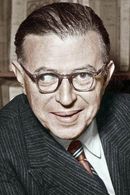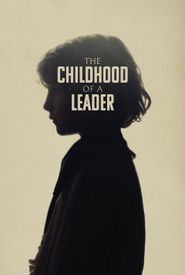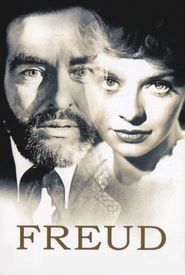Jean-Paul Charles-Aymard Sartre was born on June 21, 1905, in Paris, France, to Jean-Baptiste Sartre, an officer in the French Navy, and Anne-Marie Schweitzer, the cousin of Nobel Prize laureate Dr. Albert Schweitzer. His father died when Sartre was just one year old, and he was raised by his tough grandfather Charles Schweitzer, a high school professor, in Meudon. Sartre's early education included music, mathematics, and classical literature, and he studied at the Lycee Montaigne and Lycee Henri IV in Paris.
Sartre's happiest childhood memories were of his friendship with Paul Nizan, his classmate at Lycee Henri IV. They became constant companions and best friends. Sartre continued his studies in Paris at Lycee Louis-Le-Grand, then at Ecole Normale Superieure and Sorbonne, where he advanced in his studies of philosophy, absorbing mainly from the "Gifford Lectures" by Henri Bergson and "The Principles of Psychology" by Harvard philosopher William James, as well as from Immanuel Kant, Friedrich Nietzsche, Edmund Husserl, Søren Kierkegaard, Friedrich Hegel, Karl Marx, and Martin Heidegger.
Sartre saw the artificiality of grown-ups in the bourgeois class as the outcome of their spiritually destructive conformity. His Sorbonne classmate and girlfriend Simone de Beauvoir was also an unrestricted thinker and later one of the founders of contemporary feminism. Both learned to hate the restrictions of upper-class life. Both favored an "authentic state of being". In 1932 Sartre proposed to Beauvoir, but she turned him down and went on teaching alone. In 1935 she introduced Sartre to her 18-year-old student Olga Kozakiewich, and the three formed the "family". Sartre was used by Beauvoir, who merged both relationships into a trio that led to an unexpected and overwhelming outcome.
Sartre and de Beauvoir continued experimenting with their "open family" by including several former students of both Beauvoir and Sartre, forming a unique social group with Olga Kazakiewich, Nathalie Sorokine, and Jacques-Laurent Bost. The complex manner of relationships in the "family" was somewhat based on the intellectual connection between students and teachers, who also shared cooking and other domestic duties. Other family members' "authentic consciousness" added to social inventiveness and developed a sort of a survival group-therapy during the occupation of Paris in WWII.
In 1938, Sartre wrote "La Nausee" (Nausea),which became the canonical work of existentialism. It was partially influenced by Franz Kafka and Edmund Husserl, reiterating the belief that human life has no purpose. The book is set in a French town where Antoine, a 30-year-old historian, is doing his research on an 18th-century politician. He is gradually overtaken by a sickness he calls nausea. This alters his senses, thoughts, and emotional experiences of the past and present in an uncommon way. Antoine is anxiously searching for the lost meaning of things, people, and events.
Sartre was initially torn between his pacifism and his anti-Nazi position. In 1939, he was drafted into the French army and assigned to the 70th Division in Nancy, then transferred to Morsbonn military camp. There he started writing his "L'etre et neant". He was captured by the Germans and imprisoned from 1940-1941. While in prison, he reread Martin Heidegger and wrote the play "Bariona". In March of 1941, he escaped from the Nazi POW camp. He and Beauvoir traveled to the south of France, where they wooed André Gide and André Malraux to their underground group, "Socialisme et Liberte". Their active resistance was soon tamed into mere writing for "Combat", published by Albert Camus. Sartre became a teacher in Lycee Condorcet from 1941-1944 and supported the "family" of five during the occupation of Paris.
At that time, his opus magnum "L'etre et neant" (Being and Nothingness, 1943) was completed and published. He also wrote a play, "No Exit", as an attempt "to repeat 'Being and Nothingness' in different words". It premiered in May of 1944. In 1945, Sartre with his intellectual friends co-founded "Les Temps Modernes", a leftist journal named after Charles Chaplin's film Modern Times (1936). Sartre published Beauvoir's works first, giving her a steady platform and publicity.
His "Reflexions sur la question juive" (Reflections on the Jewish Question) was written after the liberation of Paris from the Nazi






















